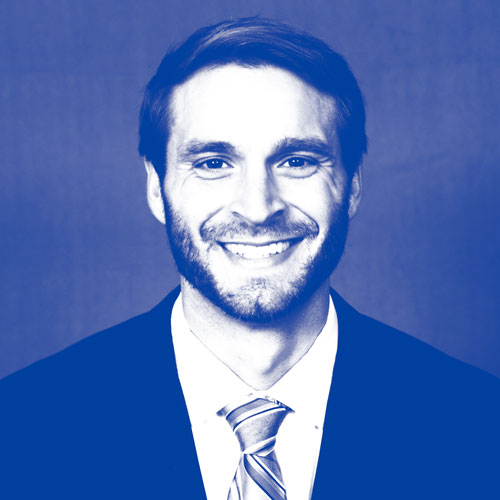Doctors are experts at diagnosing and treating medical issues, but Heartland Dental turns doctors into even stronger leaders in their careers and communities. A service-oriented philosophy fuels the Illinois-based company’s supportive relationship with doctors and affiliated practices across the United States based on teamwork and career development. Here, Profile chats with John Pantazis, Heartland Dental’s vice president, general counsel, and secretary, who reveals his take on the best approach for running a legal team in the medical industry, and how Heartland Dental cultivates some of the finest minds in dentistry.

How does Heartland Dental help supported dentists focus on patients rather than paperwork?
Dentistry is a cottage industry, and you have a lot of single dental offices with one or two dentists who do everything. They’re not just seeing patients, which is what they’re passionate about and what they’ve gone to school to do. They’re also doing the purchasing, human resources, IT, insurance, and everything else. And all of those things are getting more and more complex. Heartland Dental offers all of those nonclinical services from individuals who specialize in those areas, so it’s really just about specialization. Specialization is everywhere in the economy—that’s what it’s all about. You could almost say that economic progress is measured by specialization.
Did Heartland Dental’s service-oriented philosophy play a role in your decision to join the company?
It did. America, like a lot of places, has an issue with dental access, and access to dental care is an issue that’s related to a lot of other health problems. I think a lot of people underestimate how important dentistry is and that it really matters. Heartland Dental helps improve access to care. Instead of being in the back office, supported clinicians are able to spend more time with their patients and are also able to participate in community initiatives like Free Dentistry Day.
I’m working on having my entire team go to an office in support of Free Dentistry Day. It’s one of our goals for next year. We culturally believe it’s important, and it’s celebrated throughout the company.
What challenges are unique to being a general counsel in the medical industry?
It’s a highly regulated industry, so you obviously have a lot of regulatory work. You have a broad spectrum of legal issues. We deal with everything from malpractice and employment to HIPAA (US Health Insurance Portability and Accountability Act) and other privacy considerations. We’re a growing company, so we do a lot of transactions, and we’ve gone through a few transactions with different private equity sponsors as well.
How did you tackle being the first in-house counsel at Heartland Dental?
I think it was just integrating into the leadership team and earning trust to become viewed as a partner and somebody who can help solve problems rather than create more problems. We don’t want to be seen as scary, but as a valuable resource by the other members of the executive team and by the doctors we support across the United States. We didn’t want to be viewed as “legal,” but instead as the friendly, helpful people in legal who can help you accomplish things. I know that may sound a little silly, but it’s true. That really is what you need to do so that you can integrate. It’s a learning process both ways.
What strategies did you employ to build and grow your team?
As a company we’ve worked a lot with the Bell Leadership Institute out of the University of North Carolina on strategies for recruiting the right people. And so we’ve followed that process to try to recruit and retain the right folks. We’ve recruited an outstanding team—a junior attorney and four paralegals who support the department. It’s about finding the right people, the right fit, and then trying to grow them and give them the right amount of guidance.
How have you proved your value to supported dentists and other departments?
For the doctors we support, sometimes it’s as simple as being there to answer the phone and helping with day-to-day concerns. One time, a newer doctor called and was upset because he had put fluoride on a kid’s teeth. The kid’s mom thought fluoride was scary, so the doctor was panicked about that and called, and I just listened, just to be there for him. If an office calls us because it can’t get a patient to sign a release, we will help provide an ideal communication plan for that patient, whether it’s creating an e-mail, letter, or proper language. If doctors have an issue with the dental board or something similar, we can help support them through that process as well.
In terms of the value we provide to the other departments, we support everything from helping the finance team as they look for new financing, to doing regulatory work that ensures Heartland Dental’s interests are protected. We do deal with some anticompetitive activity by state dental boards at times, so we’ve done a lot of work on that front.
How has your team’s legal resource guide helped provide support?
We obviously can’t provide legal advice, but what we can do is provide answers to some of the frequently asked questions that
pop up from time to time and point out what’s on the books in the different states. That’s something we’ve done a lot of work on and continually update, to try to provide a valuable service to the supported doctors and team members.
Have you found that the resource guide has saved your team time in answering one-off questions?
I think it has saved time with people having to try to figure things out themselves. One of the biggest benefits of Heartland Dental is that the supported doctors have access to roughly 1,100 other doctors if they have a question. We have an all-doctor e-mail thread where they’re frequently asking each other questions and consulting and getting support that way, which is unique in the dental industry.
Does the legal team play a role in the e-mail thread?
We do. We’ll jump in and try to answer questions as appropriate, but it’s really a community. It’s almost like a family of different folks, and people chime in when they know the answer.
What’s the goal of your initiative to move toward model legislation?
As the dental support organization, or DSO, model has grown, we see some anticompetitive regulations that get considered. The model legislation is an effort to try to pass a model bill that makes sense and that clarifies exactly what DSOs do (nonclinical support) and don’t do (practice dentistry), so that we can hopefully put that issue to bed. The hope is to get a framework that works for this growing industry and better define it. With that on the books, there’s less fertile ground for anticompetitive efforts to regulate DSOs improperly.

